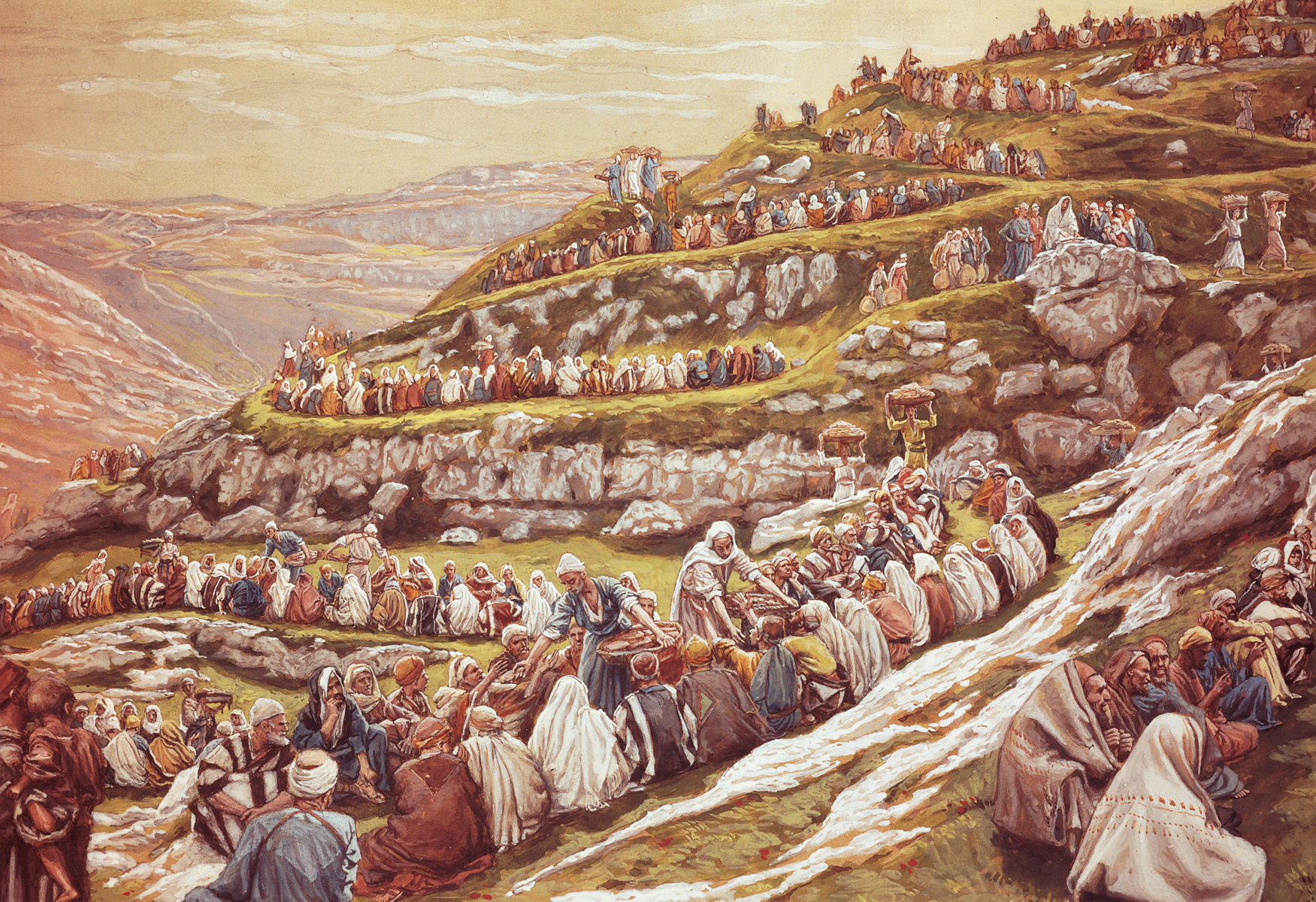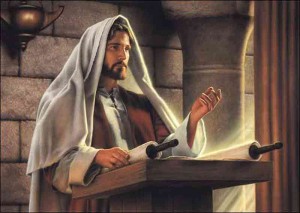This past week I was able to read about how Christ reacted to the death of His cousin, John the Baptist, and when Jesus fed the 5,000. I was able to think about the attributes of Christ and what I need to do in order to be more like Him.
Jesus Christ and John the Baptist were cousins. There isn't, as far as I've read, much about their childhoods, but I imagine that they were close friends. John prophesied the coming of the Savior and prepared the way for Him to start His ministry. The death of John the Baptist is tragic and violent, and without going into much detail, he was beheaded.
When Jesus heard that His beloved cousin had been killed, He tried to go to a solitary place. We don't have concrete evidence as to why He went there, but it is presumed that it was to be alone and to mourn the death of a close friend and cousin. However, a crowd followed Him there, and instead of turning them away, he had compassion over them and healed them. I love this story because is a prime example of selflessness. Christ saw the needs of the people and those needs took precedence over His own needs.Matthew 14:12-14- And his disciples came, and took up the body, and buried it, and went and told Jesus. ... When Jesus heard of it, he departed thence by ship into a desert place apart: and when the people had heard thereof, they followed him on foot out of the cities. ... And Jesus went forth, and saw a great multitude, and was moved with compassion toward them, and he healed their sick.
President Monson said: “He brought reality to the word compassion. He showed us the way. He marked the path we should follow. Selfless service characterized His life. … The Savior’s entire ministry exemplified love of neighbor”
When the Savior had compassion for the 5,000, and stayed to heal their sick, he performed a great miracle. After preaching and healing all day, the people were hungry and the 12 apostles suggested that Christ let the people go so that they could go into town and buy food for themselves. When the Savior heard this, He told them to feed the multitude themselves. They then told Him that the only food that they had to feed this multitude was five loaves of bread and two fish. Not to mention that these 5,000 people were just the men, there were women and children there who remain uncounted. This is where the miracle occurs:
Christ fed well over 5,000 people with only two loaves of bread and two fish! Not only that, but all were full and there were leftovers. This is amazing to me and I was able to learn that with the Lord's help and blessing, we can do all things. We may not be able to feed well over 5,000 people, but we can do amazing things.Matthew 14:18-21- He said, Bring them [the loaves and fishes] hither to me. ... And he commanded the multitude to sit down on the grass, and took the five loaves, and the two fishes, and looking up to heaven, he blessed, and brake, and gave the loaves to his disciples, and the disciples to the multitude. ... And they did all eat, and were filled: and they took up of the fragments that remained twelve baskets full. ... And they that had eaten were about five thousand men, beside women and children.
This week's study principles:
Conference Talks- If we are ever reading the scriptures and we need clarification or enlightenment about a certain subject, we can look to conference talks to provide that for us. We only need to type it into google, and a whole new world will be opened to us.
Footnotes and Lexicons- (Speaking of the King James version that the LDS church prints because I'm not sure about other bibles) Footnotes can be found at the bottom of the pages in the scriptures and those footnotes provide us with cross-references, clarification, and explanations to what is happening in the verses. These footnotes are of extreme value, and we can use them to enlighten our minds and expand our understanding of the chapters. We can also look up words on the internet to find the greek translation and understand how they could have been translated differently to make the meanings of the verses different.




